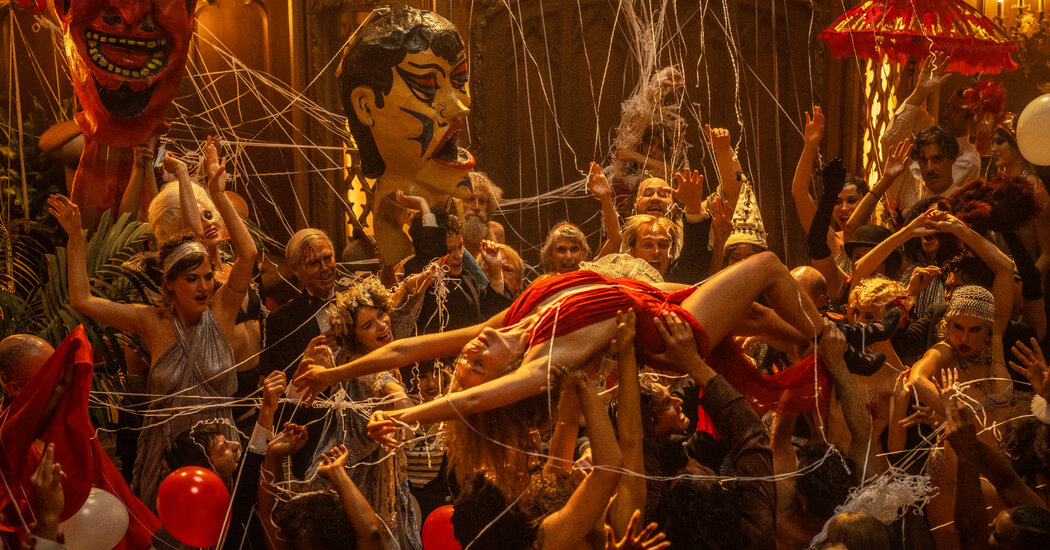
Much of the first two hours restively bounces from Jack to Nellie and Manny Torres (Diego Calva), a doe-eyed Mexican naïf whom Jack hires as an assistant. A fast, smart problem solver and a total mensch, Manny soon assumes greater responsibility and becomes a studio executive, a straighter trajectory than either Jack or Nellie’s hairpin roads. Manny is an outlier, an immigrant of color in a predominantly white business, but he’s a survivor, too, open to change and highly adaptable. Like Calva, Manny is appealing, even if the character is preposterously nice for a clichéd Hollywood striver. But it’s never really clear what makes him run and mostly he functions as a proxy for the audience, a gaga witness to the looniness.
The Projectionist Chronicles a New Awards Season
The Oscars aren’t until March, but the campaigns have begun. Kyle Buchanan is covering the films, personalities and events along the way.
Compared to the larger-than-life, at times cartoonish, more physically demonstrative performances delivered by Pitt and especially Robbie, Calva is relatively tamped down and reactive, which brings his turn closer to contemporary notions of realism. These differences add complexity and much-needed rhythm changes. Similarly to his characters, Chazelle has embraced excess as a guiding principle in “Babylon, and like his film “La La Land,” this one shifts between intimate interludes and elaborate set pieces, one difference being that Chazelle now has a heftier budget and is eager to show off his new toys. At the inaugural bacchanal, the camera doesn’t soar; it darts and swoops like a coked-up hummingbird.
Despite the relentless churn on set and after hours, the movie is strangely juiceless. I don’t simply mean that it’s unsexy (which it is), but that there’s so little life in the movie, despite all the frantic action. There isn’t much going on other than the spectacle of its busily spinning parts, which might be tolerable if the first two hours weren’t so unrelievedly unmodulated, with everything synced to the same monotonous, accelerated pace. This hyperventilated quality initially serves the story and Chazelle’s concept of the era’s delirious excess, but the lack of modulation rapidly becomes enervating. After a while, it feels punishing.
There’s something juvenile and paradoxically puritanical about Chazelle’s focus on the characters’ drinking and drugging and hard-living, and not just because their exertions don’t seem very fun. They work and party, hit marks and cut loose, follow directions and run wild; you see their technique, stamina, flubs, upstaging tricks and power moves, as well as their bloodshot eyes. Jack, Nellie and Manny seem to like making films, or at least they like the perks, and each speaks of the magic (or whatever) of movies. But their offscreen habits aren’t interesting — people do drugs and have sex, big whoop — and the real scandal is that there’s nothing special about their films, which Chazelle makes look silly, slapdash and ugly.








